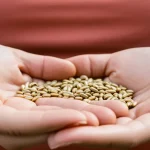Evidence-Based Principles of Sports Nutrition for UK Athletes
Unlocking optimal performance starts with adhering to UK sports nutrition guidelines grounded in evidence-based principles. The foundation rests on proper macronutrient balance—adequate carbohydrates for energy, sufficient protein for muscle repair, and healthy fats for overall function. The UK sports authority guidelines emphasize tailoring diet plans to individual training loads, which ensures each athlete meets their specific energy and recovery needs.
Recent research highlights the importance of nutrient timing—consuming key nutrients around training sessions to maximize performance and adaptation. Experts recommend focusing on whole food sources whenever possible, complemented by supplementation when necessary. Furthermore, these principles align with resources provided by British sports organizations, which offer updated evidence and position statements on performance nutrition.
This might interest you : How does grassroots development impact the future of UK sports?
UK athletes face unique climatic and cultural factors influencing nutrition needs. For example, seasonal variations may impact hydration status or vitamin D levels. Recognizing these subtleties helps refine personalized strategies. In summary, embracing core nutrition guidelines, integrating the latest insights, and leveraging UK sports authority resources creates a solid foundation for athletes striving to excel.
Sport-Specific Nutrition Strategies in the UK
Sport-specific nutrition tailors dietary approaches to meet unique demands across disciplines like UK football, rugby, and athletics. Endurance sports require sustained energy; thus, carbohydrate intake must be carefully calibrated to maintain glycogen stores. For team sports such as rugby and football, nutrition focuses on both energy provision and quick recovery between high-intensity bouts. Strength-based activities prioritize protein for muscle repair and hypertrophy, combined with carbohydrates to fuel anaerobic efforts.
Also to read : What Are the Most Iconic UK Sports Venues?
UK sports nutrition guidelines emphasize personalized strategies based on sport type and individual athlete profiles. For example, UK footballers benefit from nutrient timing that supports intermittent exertion, while rugby players also address greater overall energy expenditure and collision recovery needs. Athletics demands precision in fueling before, during, and post-event to optimize performance and adaptation.
Case studies from UK sport highlight that successful implementation of sport-specific nutrition leverages these targeted principles. Integrating UK sports authority guidelines with direct athlete feedback allows coaches and nutritionists to refine diets effectively, ensuring each athlete’s nutrition supports their distinctive physiological requirements and competition schedules. This approach enhances performance outcomes through thoughtful, science-based nutrition strategies suited to the sport’s physical stresses.
Role of Sports Supplements: Benefits, Risks, and UK Regulation
Sports supplements can enhance performance nutrition but require careful evaluation under UK supplement guidelines to ensure safety and efficacy. Beneficial ergogenic aids include creatine for strength, beta-alanine to delay fatigue, and caffeine to improve alertness. These supplements have strong scientific backing and can support specific training goals when used appropriately.
UK regulatory standards set by government bodies and sports organizations monitor product safety and label accuracy. Athletes must avoid banned substances and contaminated products, as anti-doping regulations are strictly enforced in UK sport. Understanding these risks is critical for safe supplementation practices.
Expert consensus encourages athletes to prioritize whole foods, incorporating supplements only to address identified nutrient gaps or performance needs. Effective supplementation aligns with UK sports authority guidelines, emphasizing individualized assessment and professional advice from sports dietitians.
In practice, safe supplementation entails:
- Verifying product certification and ingredient transparency
- Timing intake to complement training phases
- Regularly reviewing supplement use relative to evolving goals and scientific evidence
Adhering to these principles helps UK athletes maximize benefits and minimize potential harms of sports supplements within a regulated framework.
Hydration Strategies for UK Sport Performance
Effective hydration in UK sports requires understanding fluid needs based on the often variable UK climate. UK athletes must adjust intake to prevent dehydration caused by sweating during training or competition, regardless of cooler temperatures, as fluid loss still impairs performance. The UK sports authority guidelines emphasize individualized hydration plans that consider activity intensity, duration, and environmental factors.
Maintaining electrolyte balance is crucial, especially for prolonged or high-intensity sessions. Sodium, potassium, and magnesium help retain fluids and support muscle function. Athletes benefit from drinking electrolyte-enhanced fluids when exercise exceeds one hour or involves heavy sweating.
Timing hydration optimally enhances performance nutrition; consuming fluids before, during, and after exercise prevents deficits and promotes rapid recovery. Monitoring hydration status through methods like urine color assessment or body weight changes offers practical, real-time feedback.
Incorporating these strategies aligns directly with UK sports nutrition best practices. Tailored hydration protocols improve endurance and reduce risk of fatigue or heat-related issues, reinforcing the core message of precise, evidence-based support outlined in UK sports authority resources.
Optimal Meal Timing and Nutrient Timing for UK Athletes
Timing plays a crucial role in UK sports nutrition, directly impacting energy availability, performance, and recovery. Experts within the UK sports authority guidelines stress consuming carbohydrates and proteins strategically around training and competition. Pre-exercise meals rich in carbohydrates fuel activity, while protein intake post-exercise supports muscle repair and adaptation.
What is the best timing for nutrient intake? Research recommends consuming a carbohydrate-focused meal 2–3 hours before exercise to optimize glycogen stores. Additionally, ingesting a combination of protein and carbohydrates within 30–60 minutes after training promotes recovery and muscle synthesis. This window is vital for performance nutrition as it enhances the body’s ability to refuel and adapt to the training stimulus.
For typical UK athlete schedules, smaller snacks during prolonged or intermittent efforts sustain energy without gastrointestinal discomfort. Intra-event carbohydrate intake, especially in endurance sports, delays fatigue by maintaining blood glucose. Athletes should individualize meal timing based on personal tolerance, training intensity, and sport requirements, aligning with guidelines from UK sports authorities.
The integration of meal and nutrient timing into daily routines maximizes training benefits, supporting sustained performance and faster recovery for UK athletes.
Recovery Nutrition: Accelerating Adaptation and Reducing Injury in UK Sports
Recovery nutrition is pivotal for UK athletes, focusing on muscle repair and adaptation while minimising injury risk. Key nutrients include protein, which stimulates muscle synthesis, and carbohydrates, which replenish glycogen stores depleted during training and competition. Research within performance nutrition underscores consuming 20–25 grams of high-quality protein soon after exercise to optimise muscle recovery.
Anti-inflammatory foods rich in omega-3 fatty acids and antioxidants—such as oily fish, berries, and nuts—support tissue repair and reduce oxidative stress. These elements are essential in UK sports nutrition to accelerate recovery and support long-term training adaptations.
How can recovery nutrition reduce injury risk? Proper nutrient intake helps maintain muscle integrity and immune function, preventing overtraining and subsequent injuries. The UK sports authority guidelines recommend integrated nutrition plans that address both macronutrient and micronutrient needs post-exercise.
Athletes should prioritise timing and nutrient quality, tailoring intake to sport demands and individual recovery rates. Combining evidence-based recovery nutrition with adequate rest fosters resilience, enabling consistent performance improvements and healthy athletic careers within UK sport frameworks.
Practical, Actionable Tips and Resources for UK Athletes & Coaches
Supporting UK sports nutrition involves translating evidence into daily routines. Athletes and coaches can implement practical nutrition tips by planning meals in advance, prioritising whole foods, and using portion control aligned with training demands. Consistency is key—regular meal and snack timing helps sustain energy and recovery.
Access to credible information is essential. UK athletes benefit from consulting sports dietitians familiar with UK sports authority guidelines, ensuring nutrition strategies are personalised and updated with the latest science. These professionals also help navigate challenges like travel, competition stress, or dietary restrictions.
Reliable UK athlete resources include government advice, sports organisations’ publications, and training workshops. Combining these with hands-on support improves knowledge and adherence to performance nutrition principles.
Common misconceptions—such as relying heavily on supplements or fad diets—can hinder progress. Educating athletes on the fundamentals of balanced intake, hydration, and nutrient timing addresses these pitfalls effectively.
Key actionable steps:
- Plan meals around training schedules
- Prioritise nutrient-dense whole foods
- Seek guidance from qualified UK sports nutrition experts
Developing these habits fosters sustainable improvements, empowering UK athletes and coaches to optimise performance with confidence.








